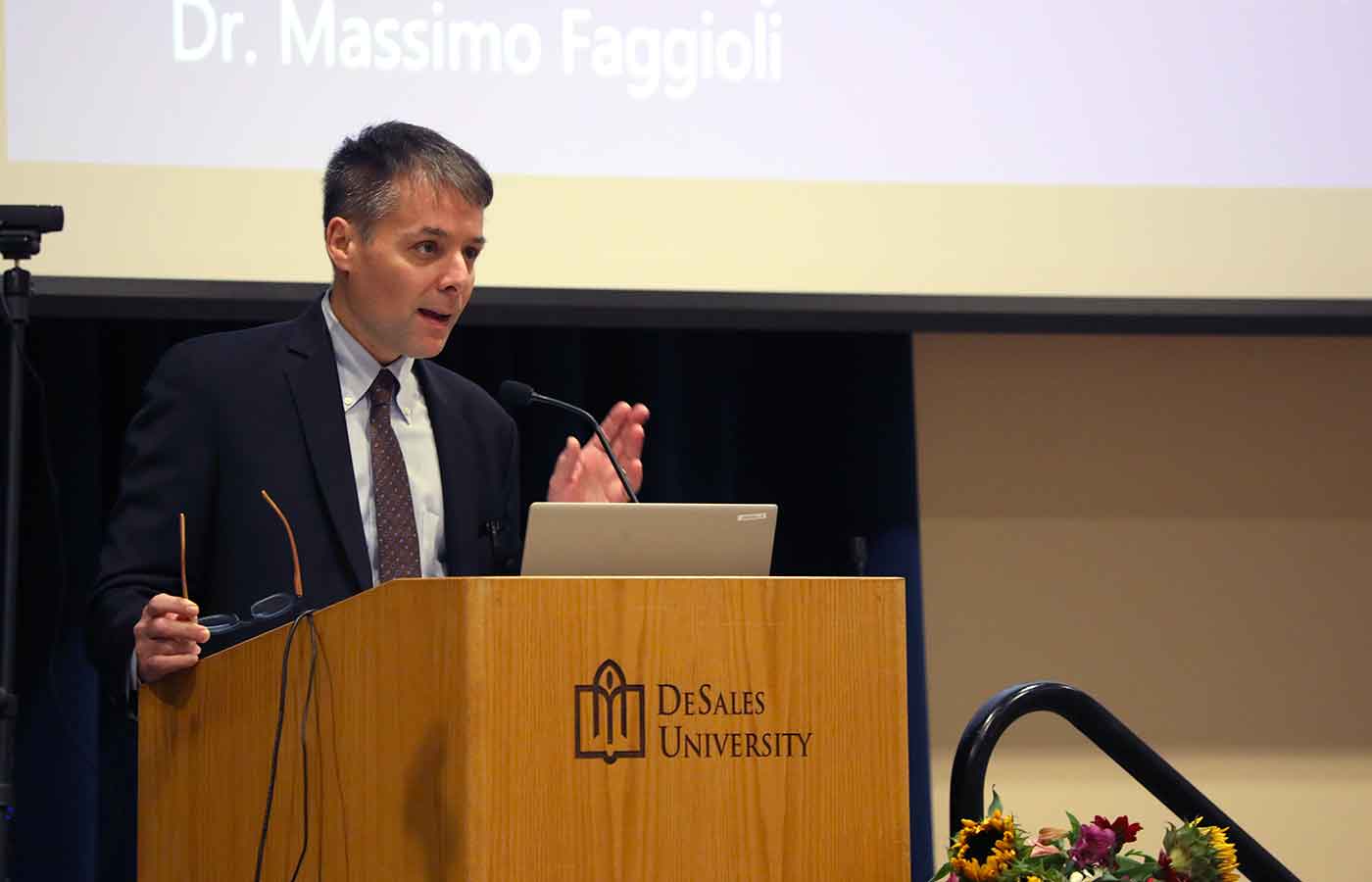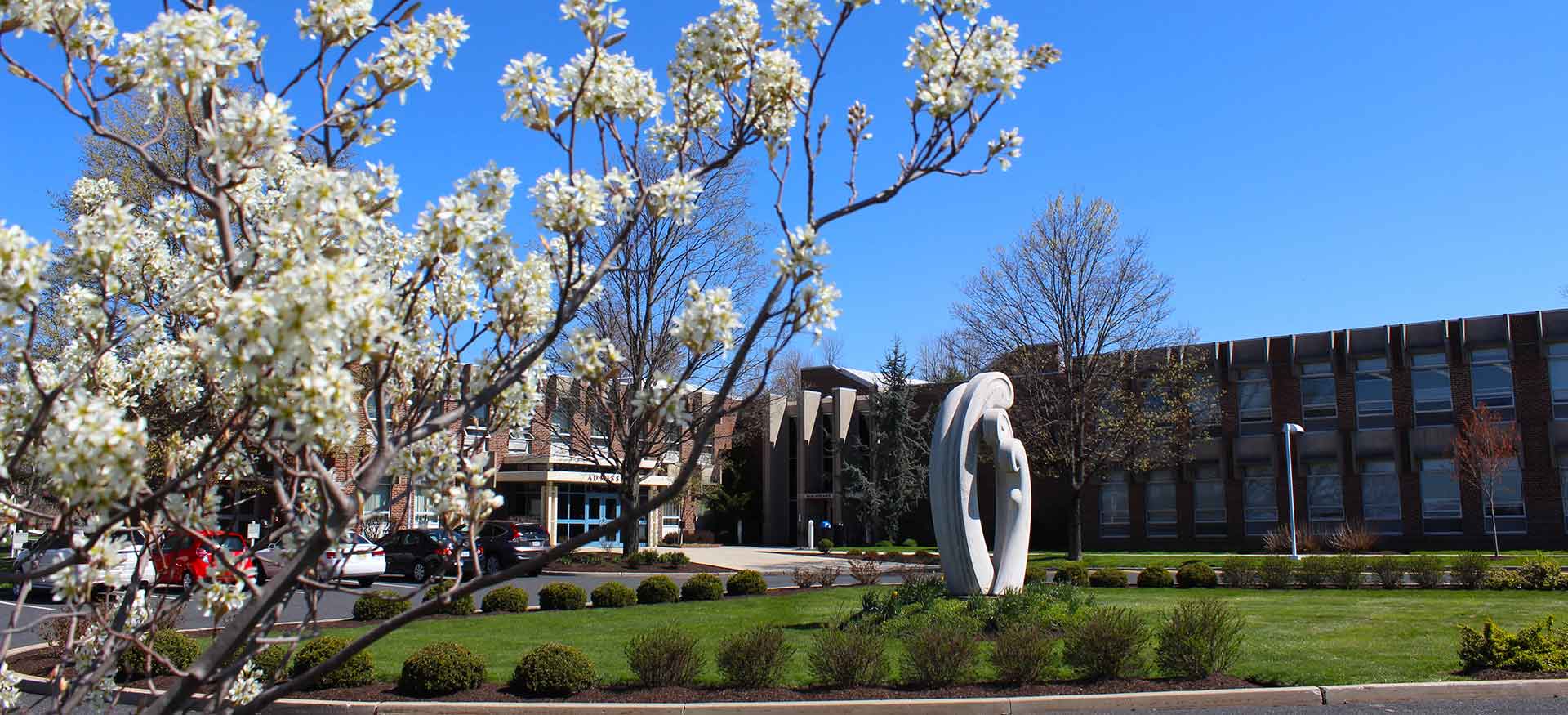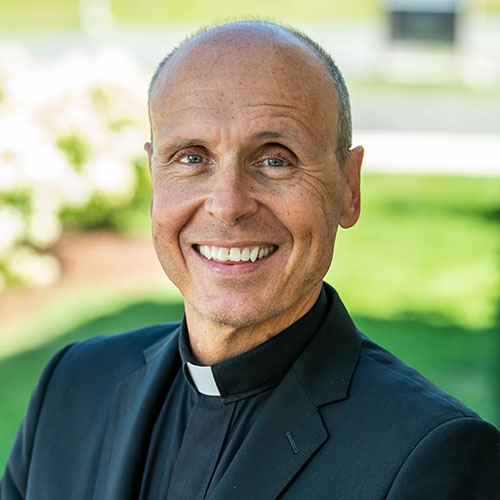Kraft Lecture Examines Global Intersection Between Catholicism and Politics

Massimo Faggioli, Ph.D., echoed the Salesian pedagogy to “Do all through love and nothing through force,” as he addressed the consequences of politicizing theology during the Joan & R. Wayne Kraft Memorial Lecture.
“The twilight of one politicization of a country cannot burden the Catholic Church without doing damage,” argued Faggioli. “We don’t have a history of politicizing the sacraments. That is new. That is not Catholic, and that is not traditional.”
Faggioli is a professor of historical theology at Villanova University as well as an author. He demonstrated why politicizing the sacraments is not traditionally Catholic through the metaphor that the Church is a field hospital versus a battlefield.
“In a field hospital, you never ask whose side you are on—for who are you fighting? ... That is an image of the church which is exactly the opposite understanding of the Church as a battlefield.” Faggioli explains that the Catholic Church is not like a battlefield because it, “doesn’t think of seclusion as a way of defining itself.”
Father Kevin Nadolski, OSFS, vice president for mission, observed the Salesian nature of comparing Catholicism to a field hospital. He said that the metaphor suggests that the Church’s sacraments possess a sense of hospitality, which is one of DeSales’ core values.
To provide an example of politics and theology intersecting, Faggioli described the circumstances of key global leaders. While President Joe Biden has inherited conflicts related to social unrest, climate change, and COVID-19, Pope Francis stepped into his role during an ecclesial crisis.
Added to the pressures of governing a tumultuous society is the increased diversification of cultural and political opinions. This tension has caused some to question the religious legitimacy of both President Biden and Pope Francis. Furthermore, many have prescribed certain ideologies to them for political gain.
Faggioli urges individuals to look beyond their political opinions of global leaders to examine the larger issue at hand; the polarization created by interpreting Catholic sacraments through a political lens. While Faggioli is the first to admit that separating religion from politics can make individuals feel powerless, he says that politicizing Catholicism only undermines the Church’s ability to progress moral issues.
“We need to liberate ourselves from the idea that we can implement a pure social Catholicism versus a corrupt political system. This is unfortunately a fantasy. And if it’s done at the expense of Eucharist this will ultimately destroy Catholicism.”
Father James Greenfield, OSFS '84, president of DeSales, was also present at the event. He described the history of the Kraft Lecture, stating, “The Kraft Lecture has been part of the DSU patrimony for more than 25 years. Begun in 1995, it honors the lives and legacies of Deacon R. Wayne Kraft and his beloved wife, Joan.”
A specialist in science and philosophy, Deacon Kraft was an adjunct professor in philosophy at DeSales. He authored more than 50 articles and four books, earned an honorary doctorate of humanities degree in 1984, and received the DeSales Medal in 1988 for his work as a Catholic layman.
Joan Kraft was one of the first women lectors, a Eucharistic minister, and was profoundly involved in church and community affairs. She earned a degree in pastoral care and became the first Catholic woman volunteer associate chaplain at St. Luke’s Hospital. She was awarded the DeSales medal for her charitable work, as well as an honorary doctorate.






